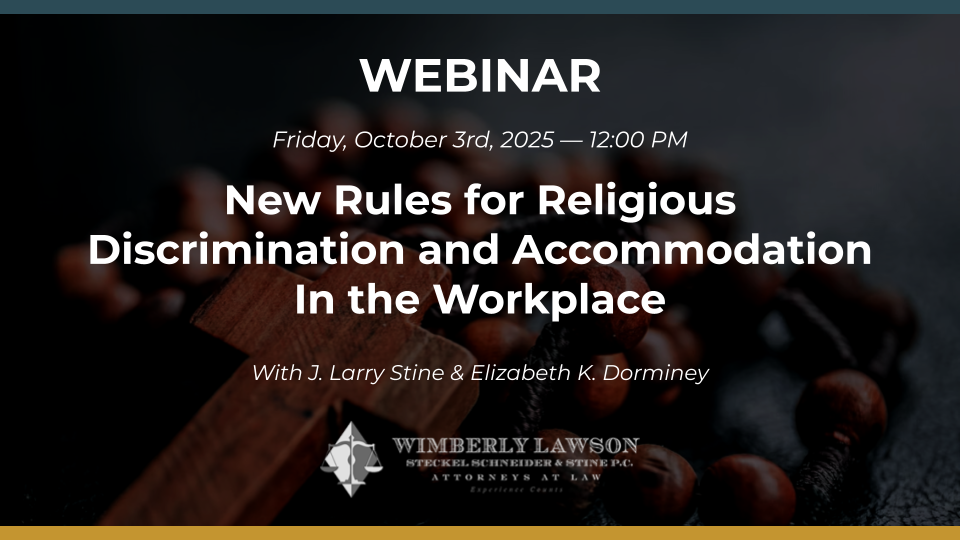Do You Know the Effect of the New Tax Law on the Tax Deductibility of Harassment Settlements?
I am not a tax lawyer, but I do need to concern myself with the general tax consequences of settlements of litigation that I handle on behalf of our clients. So I was fascinated to learn of in a little-known provision of the Tax Cuts and Jobs Act of 2017, a/k/a the new Tax Law (which was signed into law on December 22, 2017), that changes the tax consequences to employers of settlements in sexual harassment and sexual abuse cases. What does the New Tax Law change? It now prohibits tax deductions to companies for sexual harassment settlements that are confidential.
Under Section 13307 of the Tax Cuts and Jobs Act, employers no longer receive a business deduction for "(1) any settlement or payment related to sexual harassment or sexual abuse if such settlement or payment is subject to a nondisclosure agreement, or (2) attorney's fees related to such a settlement." In plain English, this means that if an employer requires an employee to sign a nondisclosure agreement as a condition of a sexual harassment settlement, or the settlement agreement contains a confidentiality provision, then the employer cannot claim the settlement payment, nor the corresponding attorney's fees as a business deduction. This provision applies to amounts paid or incurred after December 22, 2017.
Because the New Tax Law was hastily put together without anything in the way of public hearings, there are issues that will need to be resolved, such as:
- What constitutes a "confidentiality provision?"
- Can the parties separate out portions of a settlement payable to sexual harassment from those payable to other allegations to minimize the tax consequences?
- Is the bar on deducting attorney's fees "related to such a settlement or payment" to be read literally as meaning that only the fees relating to the settlement process are not deductible — as opposed to the fees incurred in all other aspects of the litigation that came before settlement?
One big question is whether this change in the tax law will act as a disincentive to employers to settle harassment cases. Companies may now balance the costs (including attorneys' fees) of a trial (which will be tax deductible) against the lost tax deduction of a confidential settlement.
In all, this new law appears to be a heavy-handed approach to the recent publicity regarding sexual harassment and abuse and the #MeToo movement. Most of the time, companies insist upon confidentiality of settlements of harassment and other employment claims not to cover up bad behavior, but to prevent other employees and former employees from showing up to the company's door with their hands out for money. And confidentiality benefits those employees who do not want to attract a bunch of newfound friends and relatives who also have their hands out for money.

Kathleen J. Jennings is a former principal in the Atlanta office of Wimberly, Lawson, Steckel, Schneider, & Stine, P.C. She defends employers in employment matters, such as sexual harassment, discrimination, Wage and Hour, OSHA, restrictive covenants, and other employment litigation and provides training and counseling to employers in employment matters.
Related Content
Get Email Updates
Recent Content

Trump Nominates Appointments to NLRB and EEOC but Policy Changes Likely to Be Delayed

DOL Launches Self-Audit Programs Designed to Help Employers Improve Compliance

DOL Must Release EEO-1 Reports to the Public under Open Records Laws

Current Advice on Active-Shooter Situations

New Policy for Federal Workers and Religious Expressions

